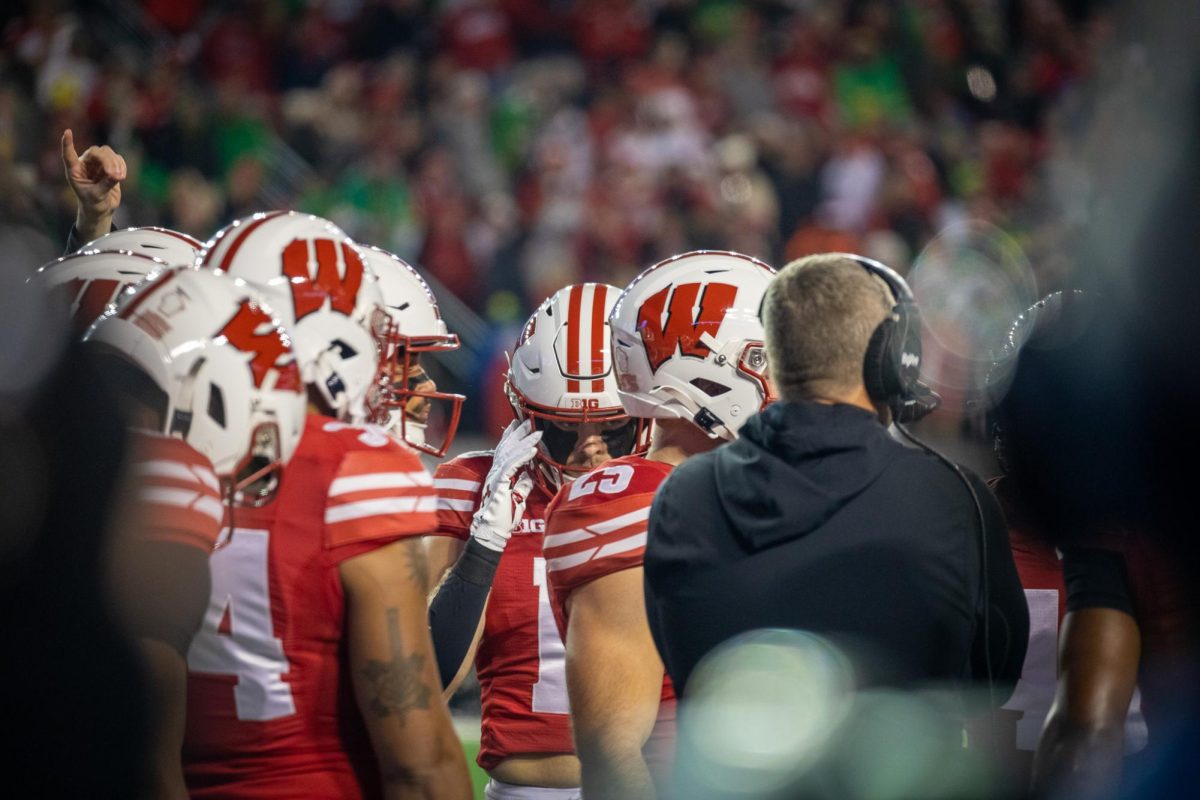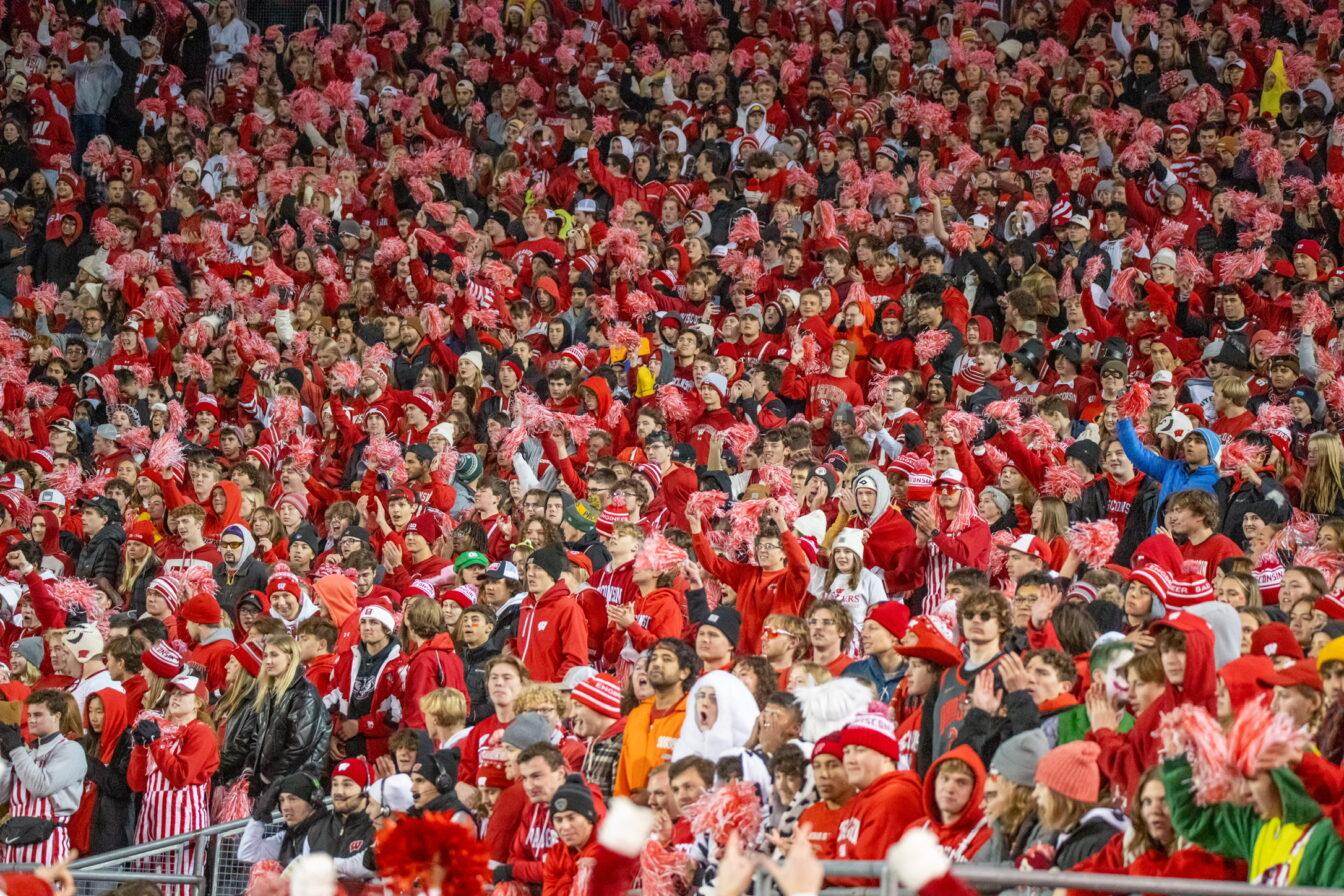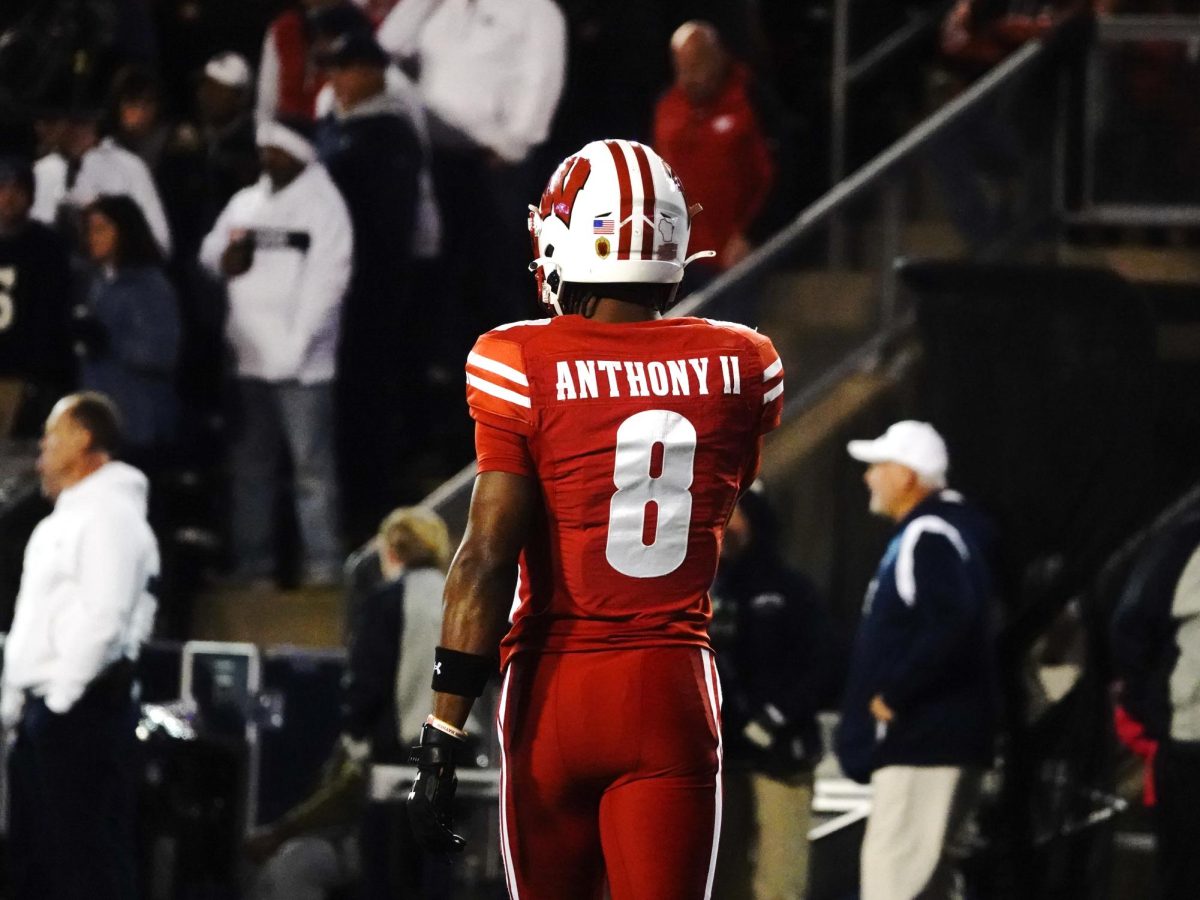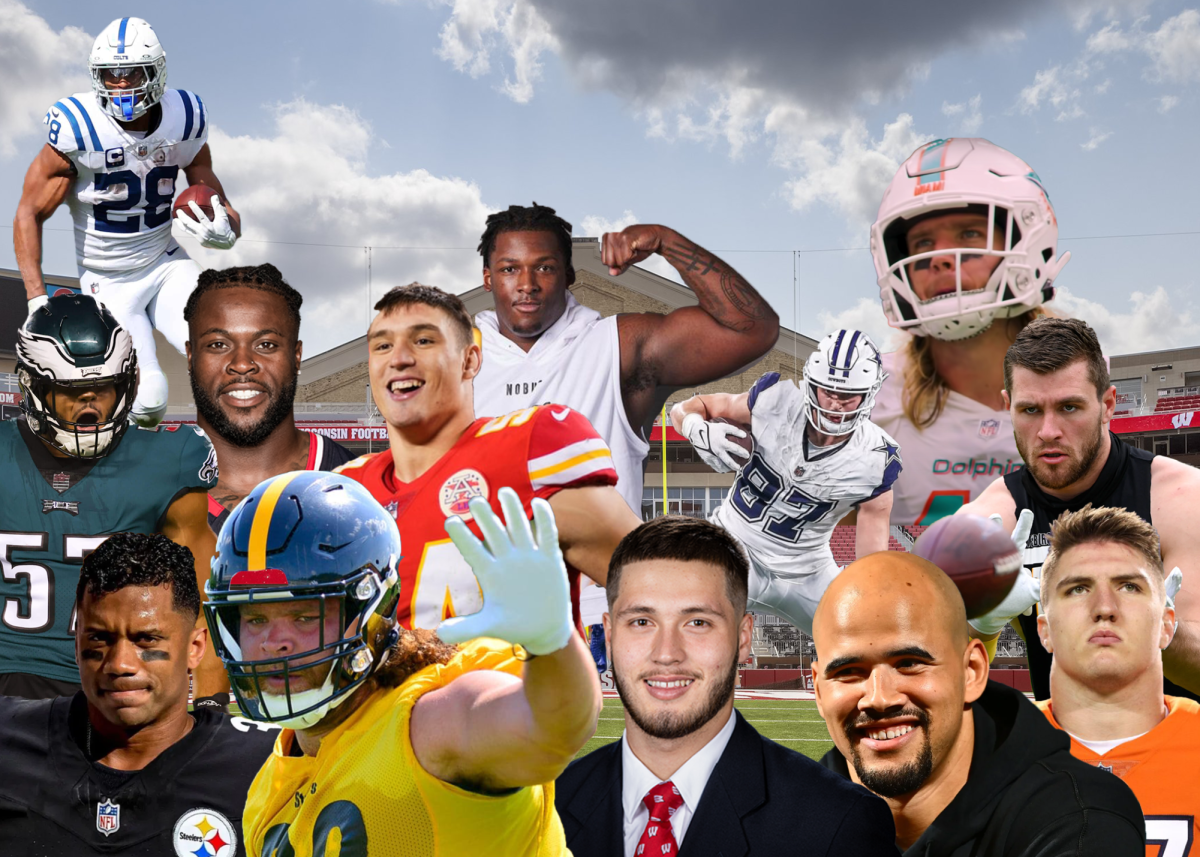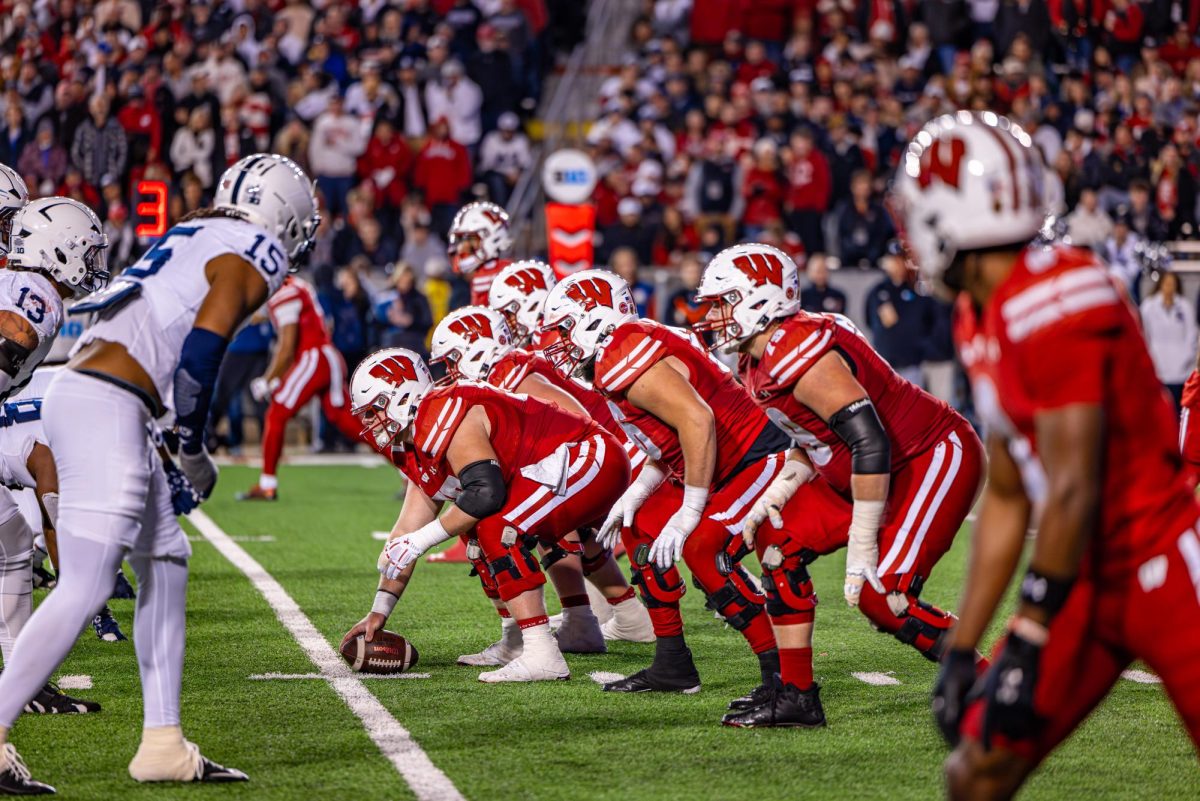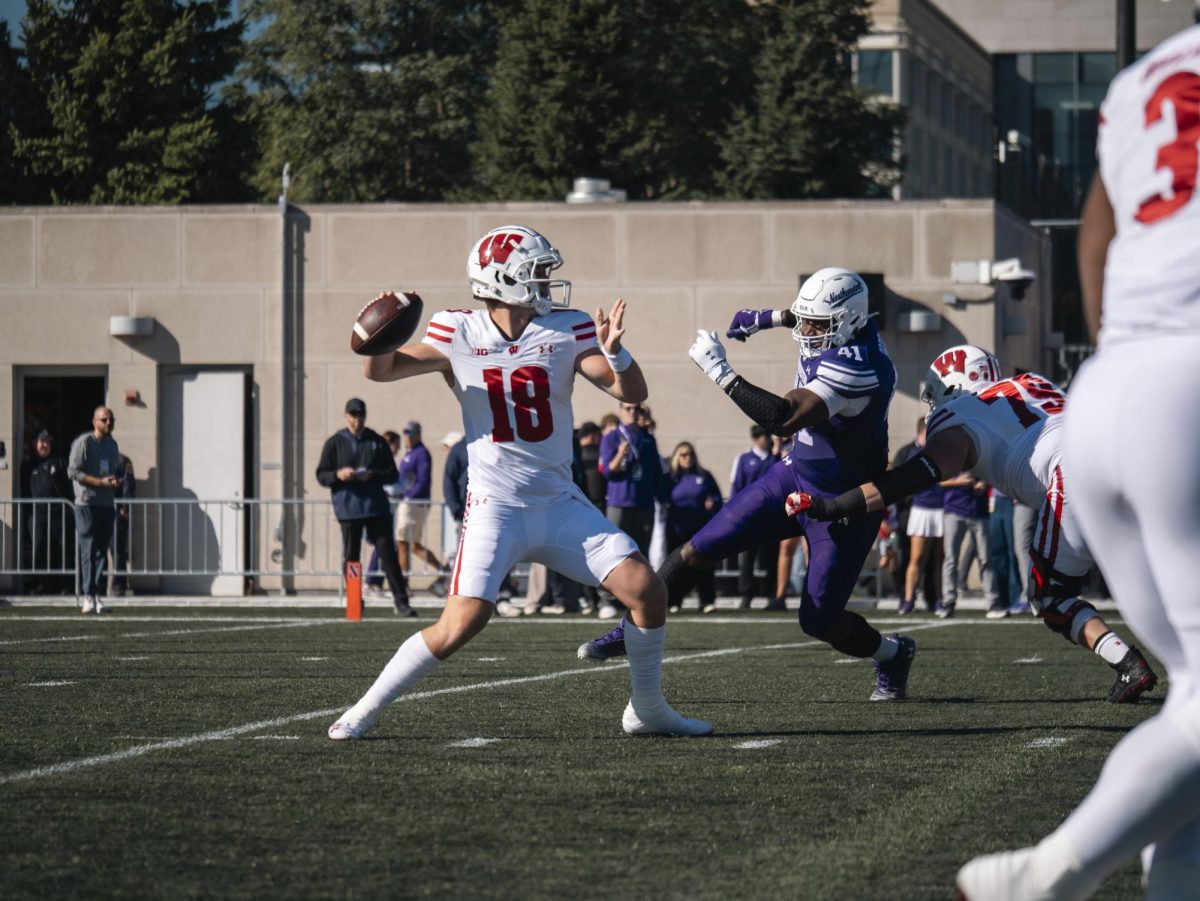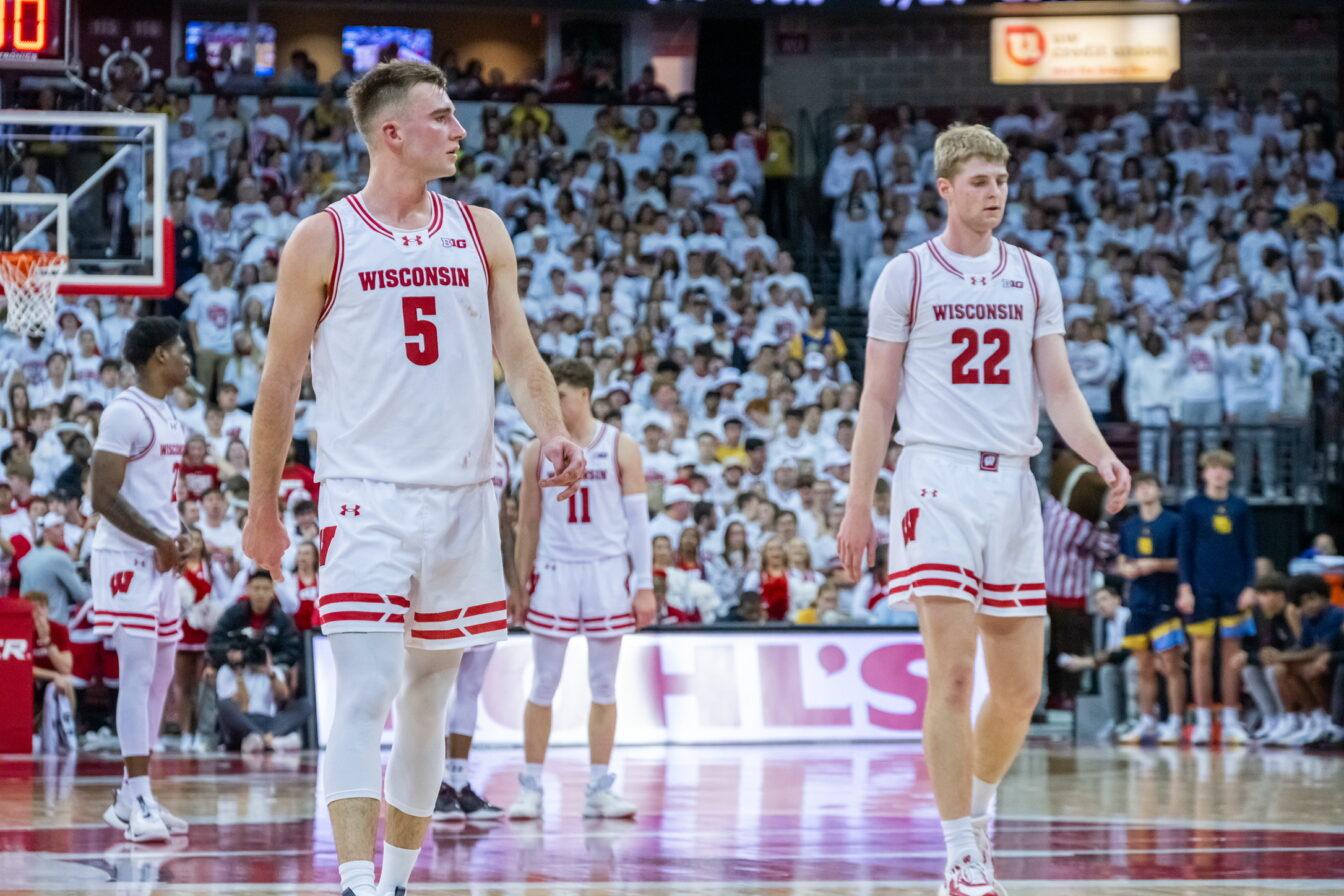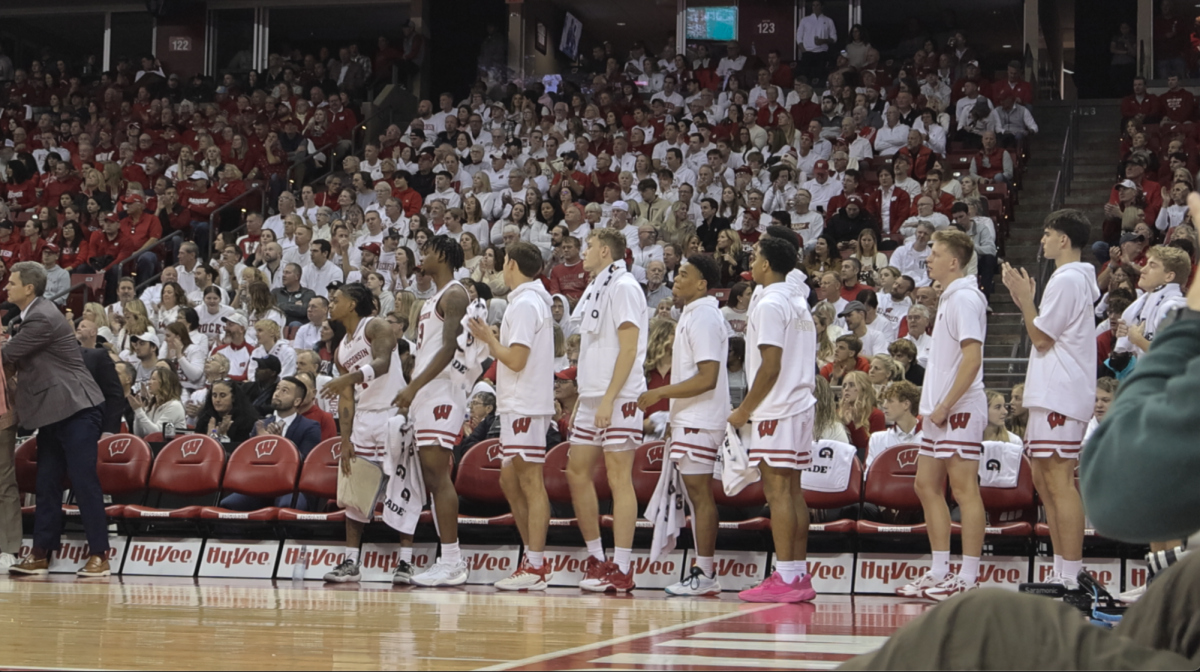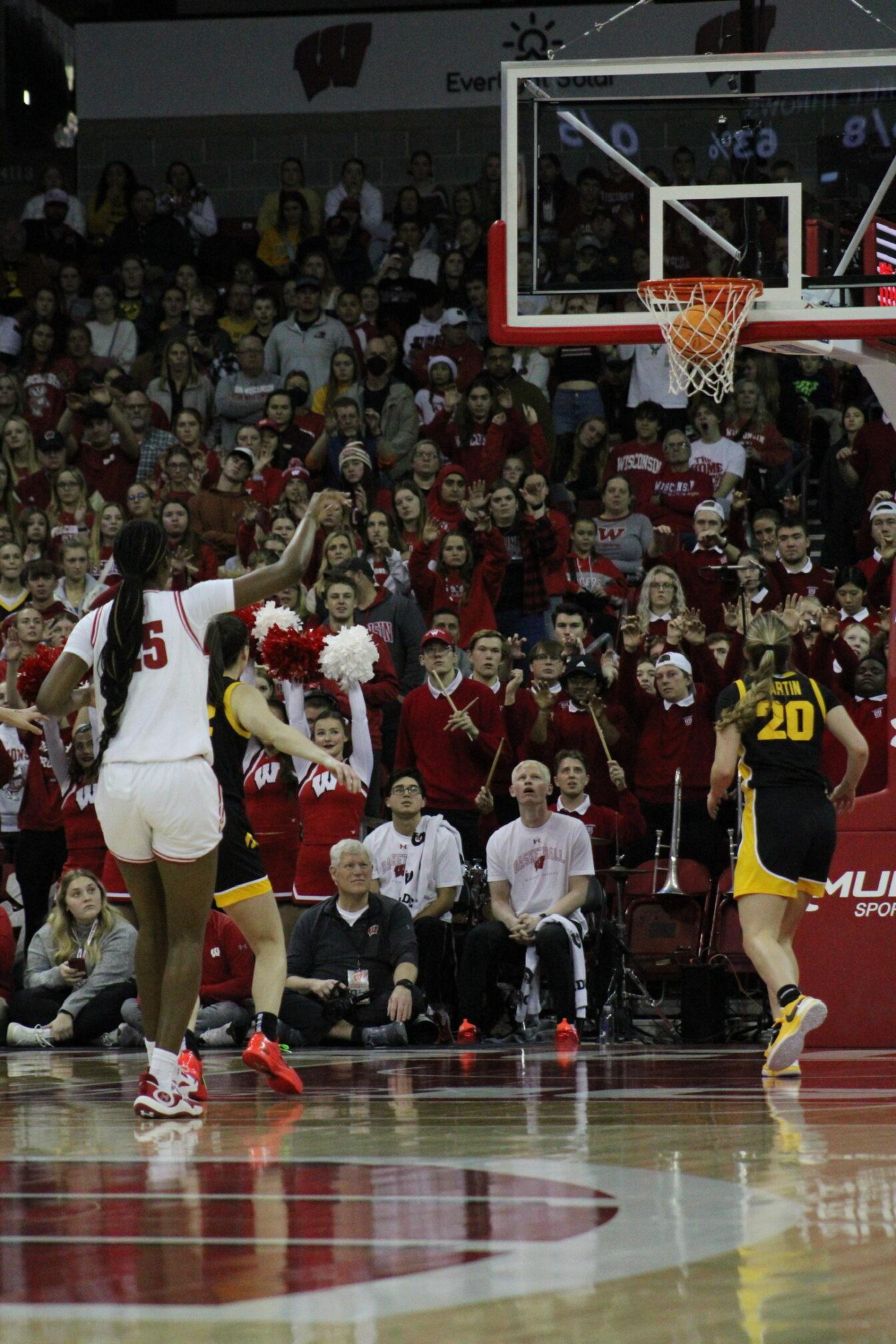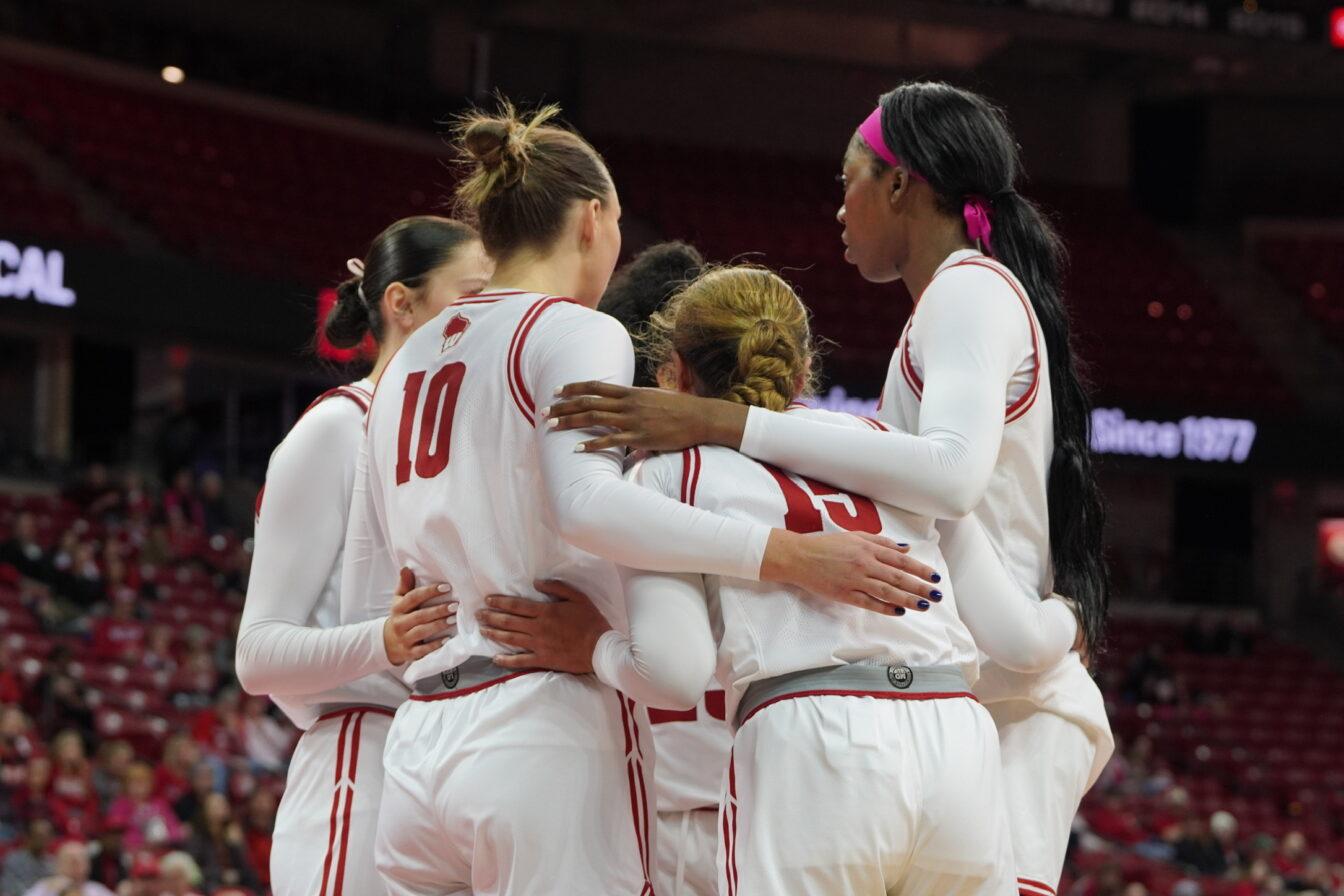Around midnight Dec. 2, the Wisconsin band blared out three notes that caused any Badgers present to instantly link arms and sway in unison.
From fans still celebrating the 70-31 Big Ten Championship victory to the players still lingering on the field, carrying roses in their teeth in celebration of their third-consecutive trip to the Rose Bowl, the music silenced all for a moment and brought them together as the words started to pour out through the Lucas Oil Stadium sound system.
Amid the melee of media, football players and whoever else found their way onto the field, one group of 16 students in red track jackets over white polos and khakis celebrated a season’s worth of hard work as they belted out the lyrics to their time-honored “Varsity.”
They aren’t athletes or fans with special passes. These are the guys behind the scenes. They are students who attend every football practice and have seen every game from the sideline. They get to the stadium hours before the team any given Saturday and experience a different kind of game day.
They are the team managers. They may not try to score touchdowns or prevent them, but they’re a pack of students who work hard to guarantee the success of the boys in cardinal and white.
“In the end when the team wins we win; when the team loses we lose,” Doug Ingels said. “It’s different because no matter what happens we have a job to do beyond what happens on the field, whether it’s before the game or after the game.”
Ingels is a fifth-year senior who has served as a team manager since he was a freshman. Working largely with the defensive backs, Ingels got his job without even sitting down for an interview thanks to his older brother, who was also a manager during his time at UW.
A Sheboygan native, Ingels admitted there’s a bit of a manager pipeline from his hometown to the Badgers.
“There’s probably been over the last probably eight years, maybe 10 or so people from Sheboygan,” Ingels said. “… [My brother] got it from another kid that he played football with in high school, so you work your way in. I knew I wanted to go here. This is the only school I applied to, so once I had the opportunity to do this, I just went for it and came into the spring game my senior year in high school and went from there. There was no real application process, just knowing the right people.”
Ingels isn’t the only manager who has dedicated his college career to the sport he loves. Senior Joe Spiegelhoff – who works with the quarterbacks – also used personal connections to join the program.
“I figured if I can’t play, this is an awesome way to get involved with the sport that I love,” Spiegelhoff said.
In addition to Ingels and Spiegelhoff, there are nine other on-field student managers and five student equipment managers.
While most students spend their game days drinking their alcohol of choice and tailgating to their heart’s delight, this group of 16 sees an entirely different side of Saturdays in the fall.
No matter the start time, the managers have to be at the stadium two and a half hours before game time to set things up. So on those days with 11 a.m. starts, they are starting work at 8:30 a.m.
In the hours leading up the game, the managers push equipment carts up to the Wisconsin sideline, haul ball bags to the field and set up the kicking nets. They also move the benches into whichever formation the coaches prefer and lay out towels for the players.
With time to spare, they turn Camp Randall into their own playground.
“Then we pretty much play catch and goof around until players start coming out and then help them with whatever they need and however they warm up, which you get used to over time,” Ingels said.
Once the team starts warm-ups, the managers help run drills or warm-ups specific to each player. Over the following 60 minutes of play after the game starts, they help as needed and perform other tasks such as charting each play called, one of Spiegelhoff’s responsibilities.
After the game, the managers are always seen running around, moving player bags and equipment carts. They have to clean the field as quickly as possible and put everything in its proper place before their day is over. This season, Wisconsin used a practice locker room and a game-day locker room as construction crews worked on the new locker rooms. After each Saturday at Camp Randall, the managers had to move out of the game-day locker room and back into the practice one.
It’s a long day, but it’s what they have grown accustomed to. But Spiegelhoff did admit the hours can sometimes be overbearing.
“It’s a lot of work and sometimes you don’t get to study for a class as much as you’d like to, but it’s all managing your time,” he said. “A lot of times, free time gets sacrificed, but I enjoy what I do, so this is my fun time.”
In exchange for the time they dedicate to the program, Ingels, Speigelhoff and the rest of the managers get a unique view of the field on game day and of the program overall. They know which players are winning position battles and when Wisconsin will roll out a game plan that will put 70 points on the board.
While they are certainly fans, they are much more a part of the program than the ordinary student.
“It’s like you’re part of something bigger than what other kids are doing in college,” Ingels said.
Dedicating themselves to their jobs since they were freshman, neither Spiegelhoff nor Ingels has ever seen a game from the student section. And for the most part, they said they’re OK with that.
“I would like to ‘Jump Around’ just one time; I think that would be pretty cool,” Speigelhoff said. “But I have the best view of the game is the way I look at it. One time would be cool, but I figure I’ll try it after I graduate.”


